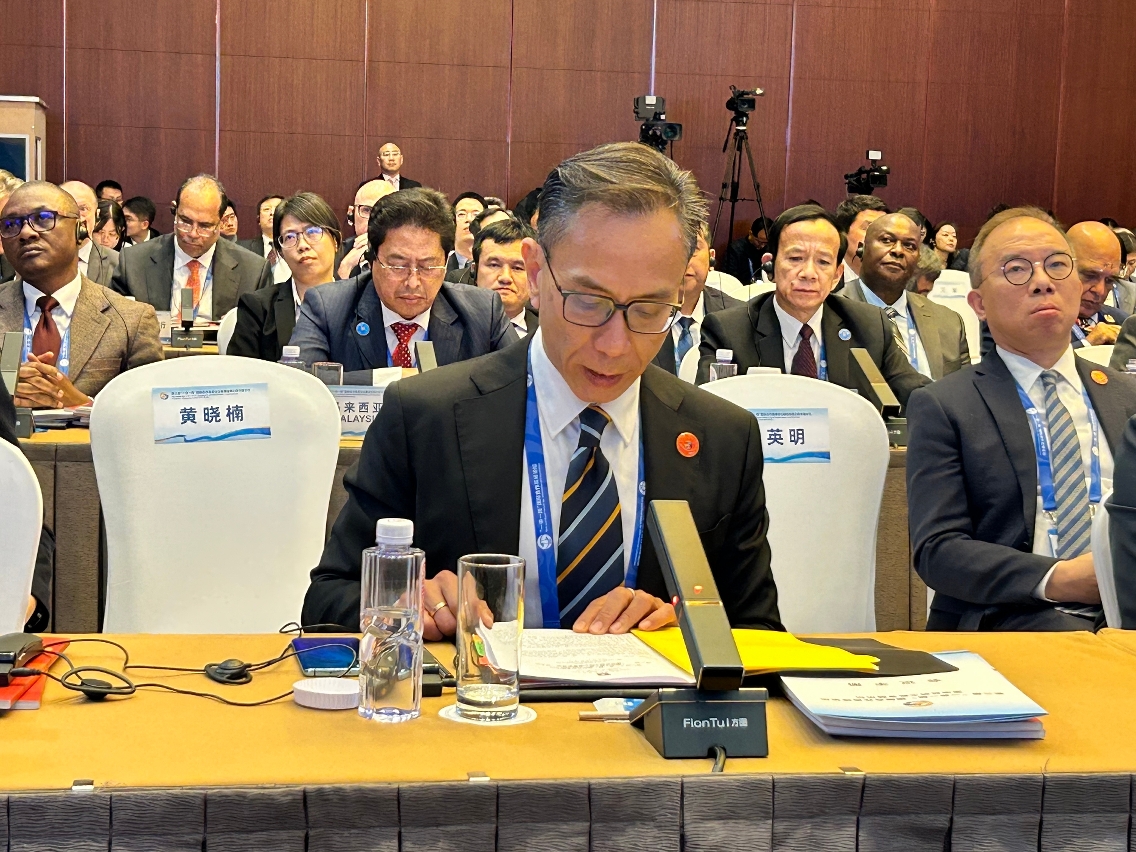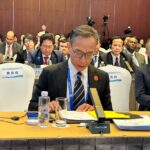 The Commissioner Against Corruption, Chan Tsz King, delivering a speech at the Thematic Forum on Clean Silk Road
The Commissioner Against Corruption, Chan Tsz King, delivering a speech at the Thematic Forum on Clean Silk Road
The Commissioner Against Corruption Chan Tsz King, who has accompanied the Chief Executive Ho Iat Seng in attending the Third Belt and Road Forum for International Cooperation, delivered a speech at the Thematic Forum on Clean Silk Road this afternoon.
Speaking at the forum, Chan Tsz King said that the countries that have signed the “Belt and Road Initiative” cooperation documents include the vast majority of the member states of the Forum for Economic and Trade Co-operation between China and Portuguese-speaking Countries. All these Portuguese-speaking countries have the opportunity to participate in the building and development of the “Belt and Road Initiative”. Although they have their own mechanisms and history of anti-corruption, they share the same official language and have the legal systems built on the same origin. For historical reasons, Portuguese is also an official language of Macao along with Chinese. Therefore, it is believed that Macao has a certain edge in this area, which enables it to play the role as a bridge between China and Portuguese-speaking countries to connect and coordinate these countries, so that they may exchange views with, take reference and learn from each other regarding integrity management, discuss and participate in the building of integrity of the “Belt and Road Initiative” and jointly contribute to the healthy development of the “Belt and Road Initiative”.
The Thematic Forum on Clean Silk Road took place at the China National Convention Center in the Olympic Green today. The Director of the National Commission of Supervision of China, Liu Jinguo, delivered a speech during the opening ceremony. Officials or representatives from the supervisory agencies and graft-fighters of over 30 countries and regions have attended and spoken at the forum.


